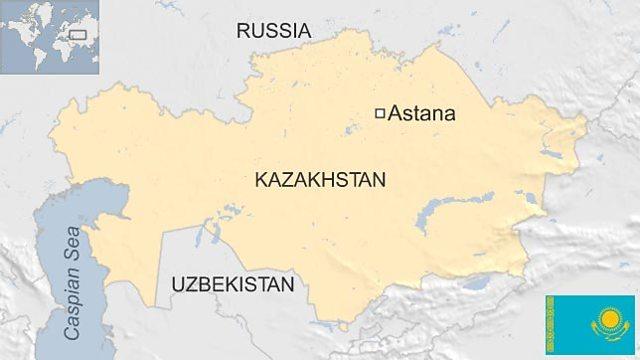Kazakhstan election: Rare protests in a country that bans dissent
- Published
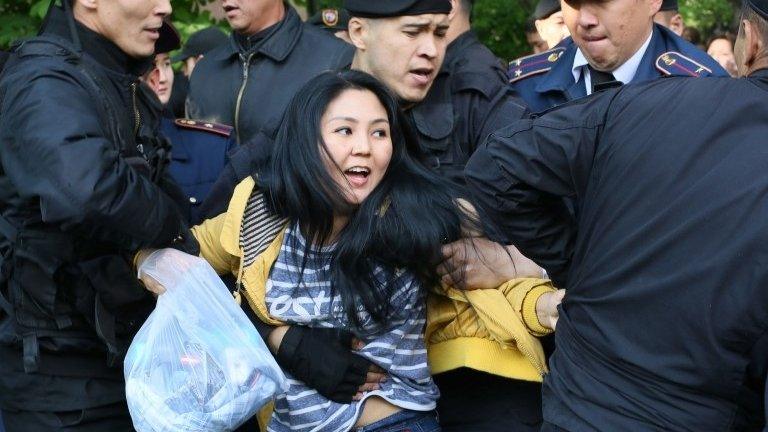
Opposition supporters were detained ahead of the vote, but protests were a surprise
Kazakhstan elects a new president on Sunday. For the first time since independence, long-serving Soviet-era leader Nursultan Nazarbayev is not among the candidates. This has inspired rare calls for change - and a crackdown on protests.
The power transfer has been planned "for more than three years", according to Mr Nazarbayev. And so far, the transition has been tightly managed.
Mr Nazarbayev resigned in March. Kassym-Jomart Tokayev, regarded as a hand-picked successor, became the new interim president. Then for the sake of "stability" snap elections were announced to complete the process.
But it is not all going smoothly for the authorities.
There have been a number of small protests calling for a boycott of the elections. In a country where no dissent is tolerated, it's remarkable to see a crowd chanting "No to the dictatorship".
Some of the loudest voices have been from young people. Everyone in Kazakhstan born after 1990 has known only one leader for their entire life - Nursultan Nazarbayev.
His resignation sparked hopes for change - but many Kazakhs quickly became disillusioned.
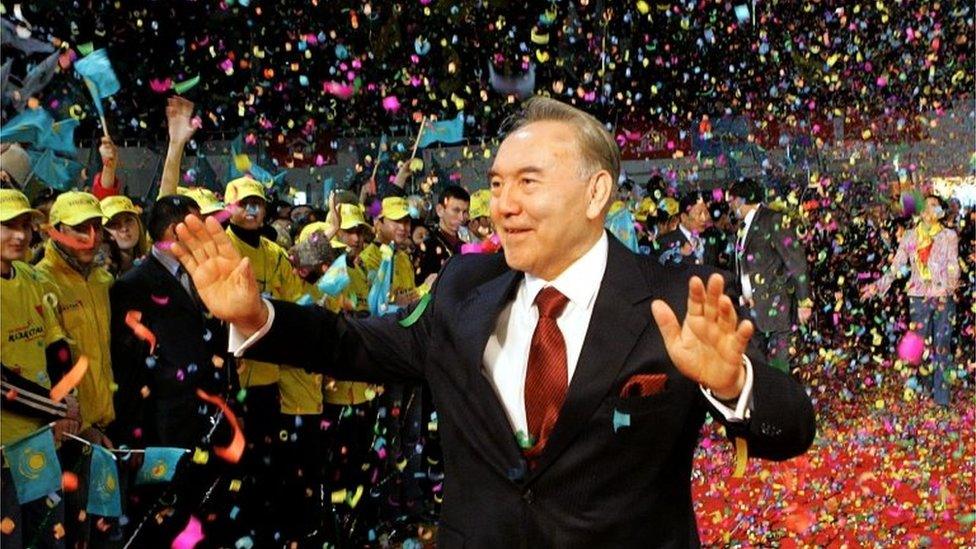
Mr Nazarbayev, seen here after the 2005 election, came to power in 1989 as Communist leader
Kassym-Jomart Tokayev's first decision as president was to rename the capital Astana as Nur-Sultan. Many young activists interpreted it as a sign that everything had already been decided for them and the looming prospect of choosing their future themselves was nothing but a mirage. They felt betrayed.
"Tokayev is not my president, Nur-Sultan is not my city, I have a choice," recited Medina Bazargaliyeva in a viral video.
The surge of activism among the youth has been unprecedented. The hashtag "I have a choice" (#уменяестьвыбор) quickly spread on social media. Students started gathering to discuss how to become observers and make their voices heard.
"On the surface, everything here looks fine. But when you scratch the surface, it's just ugly," says Asya Tulesova.
It is young activists like Ms Tulesova who caught the authorities by surprise. Throwing them behind bars only fuelled the mood for protest.
Asya Tulesova and another activist, Beibarys Tolymbekov, put up a banner at the Almaty marathon with a sign saying "You won't run away from the truth". They were sentenced to 15 days' detention for violating the public assembly law.
Following their example, Roman Zakharov hung a banner in Almaty which quoted Kazakhstan's constitution: "The only source of the state power is the people." He was arrested for hooliganism.
Another activist was detained for holding a blank poster. When he questioned why he was detained, the policeman replied, "We'll figure it out." The activist was held briefly and then released.
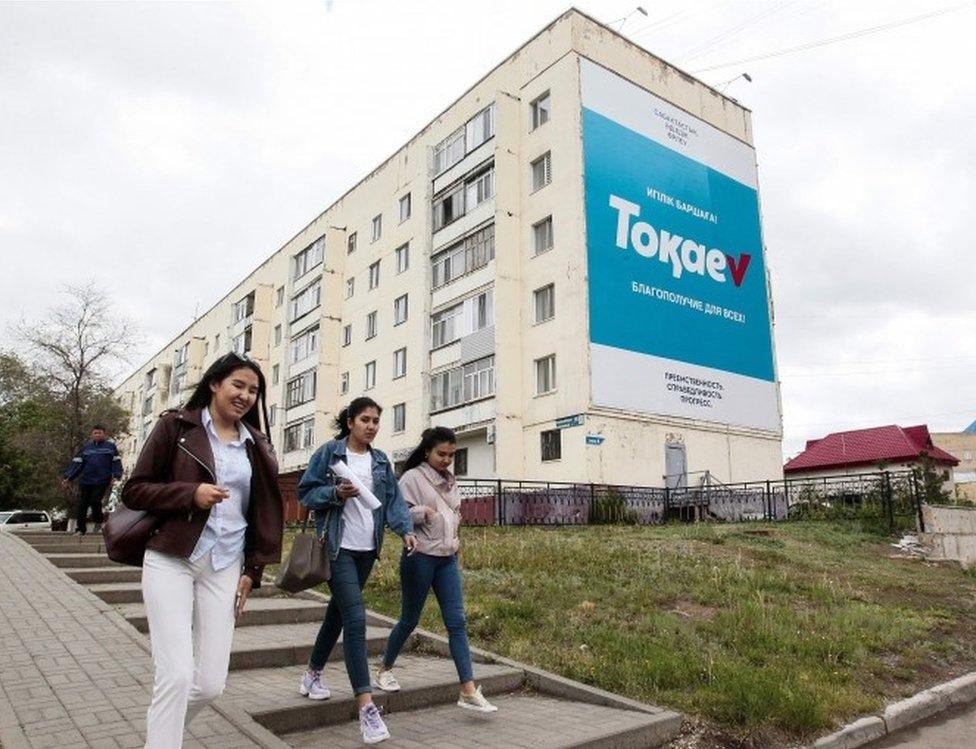
Billboards call on Kazakhs to vote for Mr Tokayev
Now protests continue in a new form - walking in the streets. Under the hashtag #seruen ("a walk" in Kazakh), young activists post their pictures on social media saying that they can't be detained for walking.
Authorities say there is no need to protest as voters have a real choice from among the biggest and most diverse number of candidates that have ever been registered in Kazakhstan. Even long-time opposition member Amirzhan Kosanov is on the list.
Kassym-Jomart Tokayev also promised that the elections would be "just, transparent and fair".
But political analyst Dosym Satpaev says this plurality doesn't really offer a genuine choice as the process itself is flawed. The victory of Kassym-Jomart Tokayev, who is seen as Nazarbayev's man, is pretty much guaranteed.
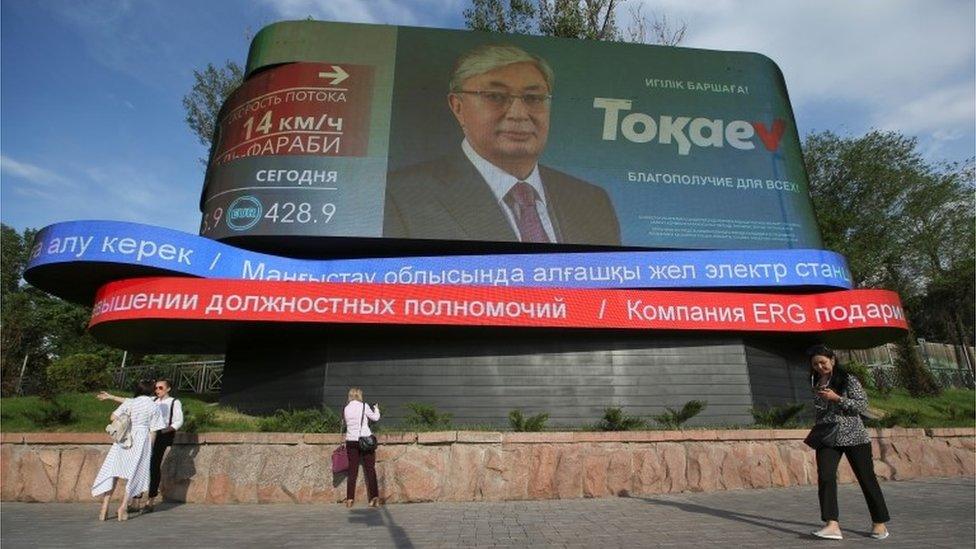
Correspondents say no one doubts Mr Tokayev will win the vote
Observers agree that no serious changes can be expected after the vote as Mr Nazarbayev will retain enormous influence.
He is the head of the Security Council for life. He remains the chairperson of the ruling Nur-Otan party. And as "the Leader of the Nation", Mr Nazarbayev's life-time title, he will be involved in all key decision-making processes.
So, when Mr Nazarbayev joked at the recent party congress about the praise he had received, some viewed it only as a half-joke.
"We are electing a new president, aren't we? It looks like I am being re-elected," he laughed.
- Published19 March 2019
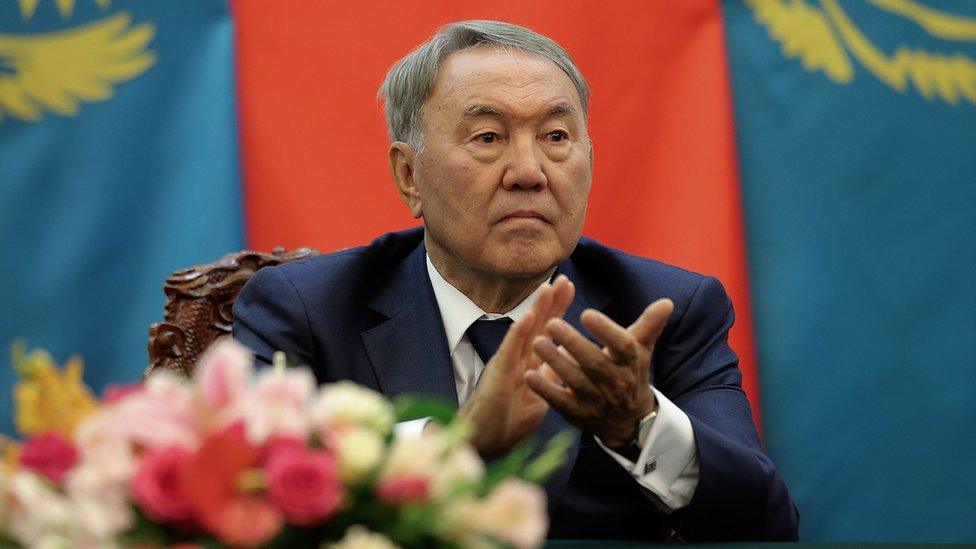
- Published4 June 2019
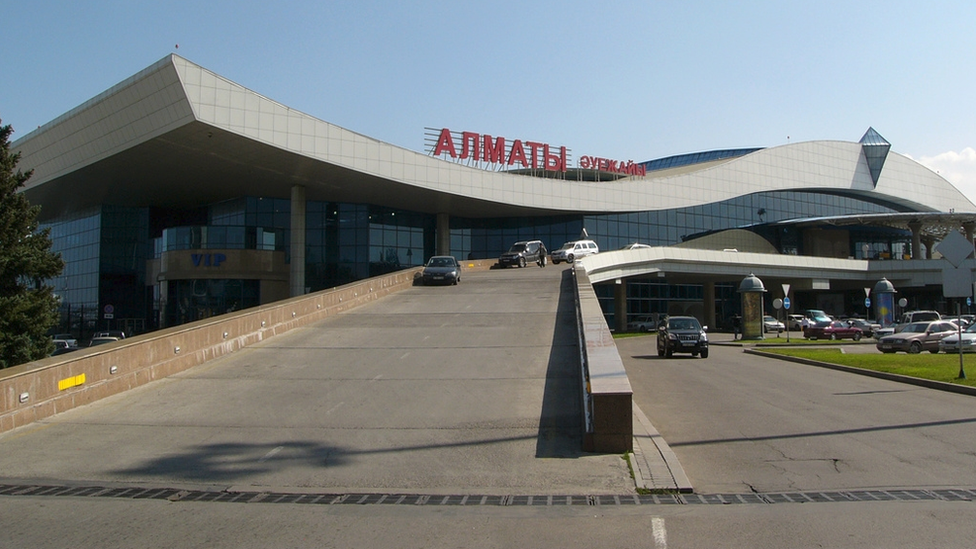
- Published24 March 2023
